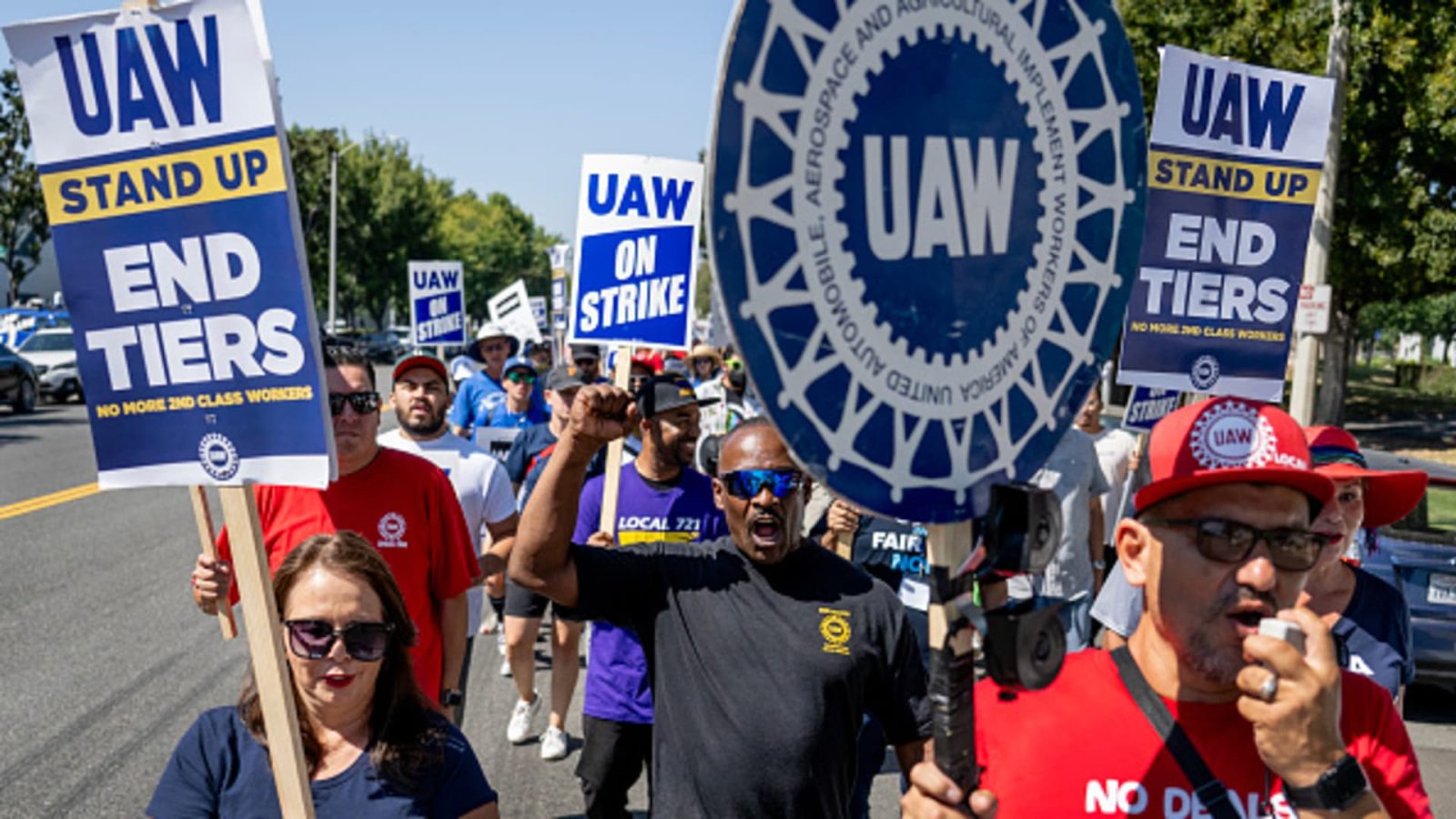DETROIT – The United Auto Workers union will expand strikes against General Motors and Ford Motor to two Midwest U.S. assembly plants at noon ET, UAW President Shawn Fain said Friday.
The additional strikes will target Ford’s Chicago Assembly in Illinois, which produces the Ford Explorer and Lincoln Aviator SUVs, and GM’s Lansing Delta Township plant in mid-Michigan that produces the Buick Enclave and Chevrolet Traverse crossovers.
Fain said Chrysler-parent Stellantis was spared from additional strikes because of recent progress in negotiations with that company, particularly around the right to strike over plant closures and cost-of-living adjustments, among other issues.
“We are excited about this momentum at Stellantis and hope it continues,” Fain said.
The additional strikes come one week after a similar strike expansion. The UAW originally initiated work stoppages on Sept. 15 at three assembly plants — one each for the Detroit automakers. Last week, the union targeted a further 38 parts and distribution locations operated by GM and Stellantis. At that time, the UAW spared Ford from expanded strikes, citing progress in those negotiations.
Fain said about 7,000 autoworkers will take part in the latest wave of work stoppages, joining roughly 18,300 workers who are currently on strike for the union.
“To restore the balance of power, we have to restore the strike,” Fain said Friday, citing several other UAW strikes aside from the Detroit automakers.
The Friday announcement was delayed by nearly 30 minutes because the union received a “flurry of interest” from the automakers, Fain said.
Fain previously said the union would increase the work stoppages, based on progress in the contract negotiations. The talks have spurred frustrations and accusations from both sides of the bargaining table.
GM and Stellantis in particular have grown increasingly frustrated by a lack of participation from Fain and what they say are delays in receiving counterproposals from the union, people familiar with the negotiations told CNBC.
Unlike past strikes, UAW leaders opted for targeted strikes at select plants instead of initiating national walkouts. It’s calling the work stoppages “stand-up strikes,” a nod to historic “sit-down” strikes by the UAW in the 1930s.
The strategy is in an effort to keep the automakers on edge in an effort to pit them against one another to achieve better contracts, according to private messages leaked last week involving the UAW’s communications director.
The messages, which described a strategy to cause “recurring reputations damage and operational chaos” for the companies, were heavily criticized by the automakers.
This is a developing story. Please check back for additional details.
Read the full article here









Leave a Reply